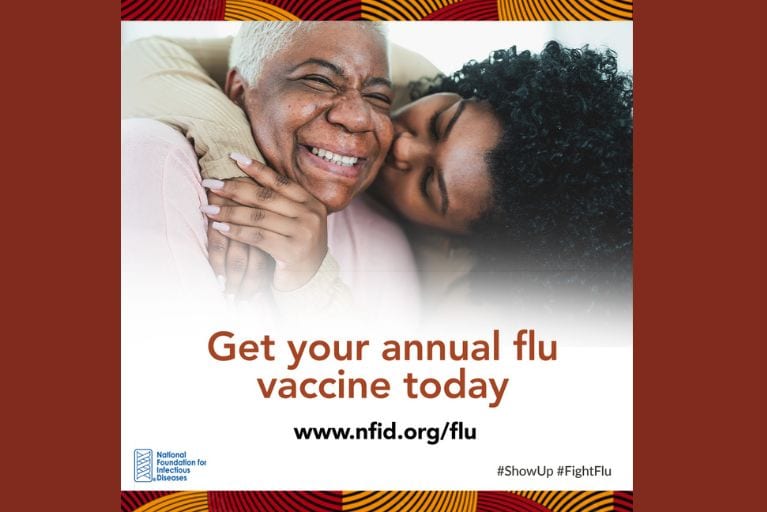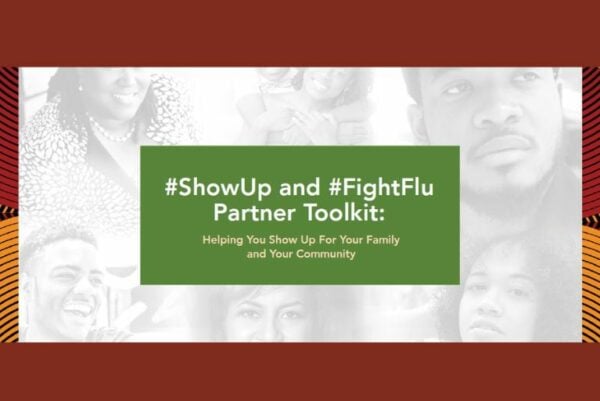
Historically in the US, Black and Hispanic children and adults have been disproportionately impacted by diseases such as influenza (flu) and COVID-19. Despite some recent improvements, racial and ethnic disparities in vaccination coverage continue across the lifespan, and these differences contribute to overall poorer health outcomes among communities of color.
To close out Black History Month, the National Foundation for Infectious Diseases (NFID) asked public health thought leaders to share their insights on overcoming health disparities and ensuring health equity:
Keith C. Ferdinand, MD, Tulane University School of Medicine (Gerald S. Berenson Endowed Chair in Preventative Cardiology): Health disparities among people of color and other disadvantaged populations are a toxic gumbo of limited access, suboptimal health literacy, and bias in the application of evidence-based medical care. The most important thing clinicians and public health officials can do is to educate and empower patients to seek the best care available at all times, including recommended vaccinations.
Robert H. Hopkins, Jr., MD (NFID Medical Director): I see these 3 issues as the pillars on which solutions to improve health disparities rest:
-
- Access/Availability: In many rural and urban areas, people need better access to, and availability of, primary healthcare, sources of healthy food, and facilities for healthy physical activity
- Cost Barriers: Solutions that address cost for those who have lower household income and/or are under- or uninsured will go a long way to addressing disparities
- Value/Trust/Demand: Community partnerships that facilitate trusted relationships between members of communities, public health, healthcare professionals, and social organizations can help build understanding and trust in vaccination and other interventions that can prevent or reduce the impact of chronic diseases
Kathleen M. Neuzil, MD, MPH, University of Maryland School of Medicine (NFID Vice President): We need both scientific advances and political will to address health disparities and reduce inequities—neither alone will get us where we need to be.
Patricia N. Whitley-Williams, MD, Rutgers Robert Wood Johnson Medical School (NFID Immediate Past-President): The constructs of racism at the systemic, institutional, intrapersonal, interpersonal, and community levels lead to health inequities. Addressing the unequal distribution of resources (to have an impact on the social determinants of health), and adjusting the allocation of power are fundamental to moving toward closing the health disparity gaps in communities of color.
Dismantling racism is the most important thing that can be done to address health disparities that result in poor health outcomes in communities of color.
Patricia N. Whitley-Williams, MD, Immediate Past-President of the National Foundation for Infectious Diseases (NFID)
Additional Resources
NFID, working with partner organizations, is committed to addressing health disparities, increasing health literacy, and supporting communities that are disproportionately affected by infectious diseases.
Share these NFID resources to help raise awareness among the public and healthcare professionals about the importance disease prevention, particularly in communities of color.
To join the conversation and get the latest news on infectious diseases, follow NFID on X (Twitter), like us on Facebook, follow us on Instagram, visit us on LinkedIn, listen and subscribe to the Infectious IDeas podcast, and subscribe to receive future NFID Updates.
Related Posts

Harnessing the Power of Local Data
NFID dashboard aims to empower stakeholders with hyperlocal data to increase US adult respiratory vaccine uptake

4 Ways to Address Disparities in Vaccination Rates
Despite overwhelming evidence of the benefits of vaccination against many diseases, immunization rates have historically been low among communities of color …

#ShowUp and #FightFlu
The National Foundation for Infectious Diseases (NFID) is working in partnership with Black-led and Black-serving organizations to increase awareness of the importance of annual influenza (flu) vaccination among US Black adults. Special thanks to NFID Immediate Past-President Patricia N. Whitley-Williams, MD, for this guest blog post on the critical role that annual flu vaccines play in protecting Black families and communities …

